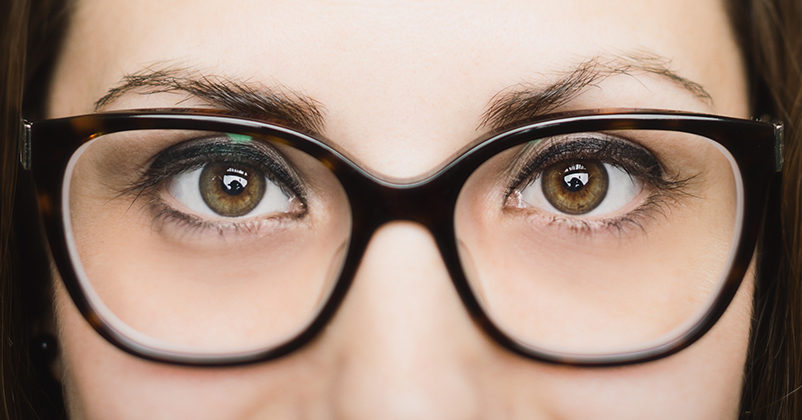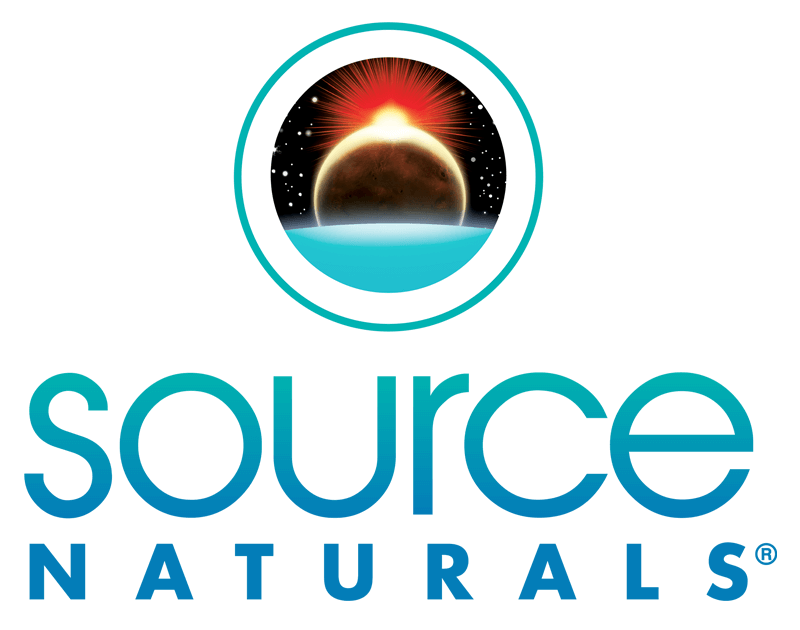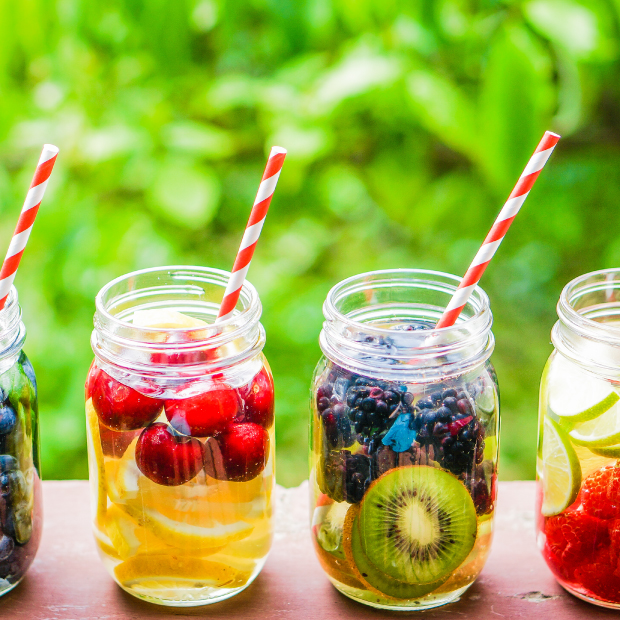
Sight, sound, touch, taste, and smell: our senses let us perceive the world. Chief among those senses is sight. It teaches us to recognize our mother’s smile…tells us when to reach out to catch a ball…shows us the beauty of a sunset. We create meaning—indeed, our whole sense of reality—from what we see; researchers estimate that vision is responsible for two-thirds of our brain’s waking electrical activity and that it facilitates as much as 80-85% of our perception, learning, cognition, and physical activity.1
Eyesight is enormously important, yet it’s vulnerable to many environmental risks, lifestyle choices, and even the biology of aging. Protecting this key sense is easier than you might think: keep the rest of your body healthy, and your eyes will benefit, too.
Your Eyes Have a Built-In Defense
Vision is the conversion of light into image signals that the brain can understand. At the back of the eye, the retina contains cells that detect light (photoreceptors) and the blood vessels that supply them. Most important is a tiny area in the center of the retina, the macula, which is densely packed with millions of photoreceptors (mostly cone cells) responsible for sharp, detailed central vision and color vision.2 There, two carotenoid antioxidants, zeaxanthin and lutein—abundant in many fruits and vegetables—form a natural pigment filter. As long as this filter is undamaged and dense, it protects the macula from the damaging effects of blue-wave light and the UV radiation of sunlight, as well as the oxidation resulting from normal body functions and exposure to environmental toxins, like cigarette smoke and air pollution.
The Worst Enemy Is Time
In the U.S. and other developed nations, the worst enemy of eyesight isn’t environment or disease; it’s the natural aging process. The wear-and-tear of time both contributes to physical changes in the eye itself and plays a role in the development of diseases that can have profound effects on your sight. Although many factors contribute to clear vision—including genetics—some of those factors are within your control.
6 Healthy Habits That Safeguard Your Eyes
Make choices that support the natural, healthy balance of your body, and you’ll keep your eyes in good shape, too. Experts agree that these 6 holistic habits can help safeguard your sight:3
1) Get your eyes examined regularly.A comprehensive dilated eye exam is the only way to be sure your eyes are healthy. Many common eye problems can have no warning signs; an eye exam is the only way you can detect these conditions when they’re most treatable.
2) Eat right.
Eating foods with plenty of eye-friendly nutrients can make a big difference in the health of your eyes. Healthy levels of antioxidants may significantly help limit the oxidation of cells and have a positive impact on age-related changes. If your diet doesn’t deliver enough of these nutrients, consider supplements to support your body with the right amounts it needs.
- Lutein and zeaxanthin: Remember those antioxidants in the pigment filter that protects the sensitive photoreceptors in the macula of your eyes? Studies suggest that adding zeaxanthin and lutein to your diet supports the density of that macular pigment. Lutein and zeaxanthin can be found in leafy greens (especially kale, collards, spinach, turnip greens, and romaine), corn, broccoli, oranges, and eggs.
- Vitamin A: This group of vitamins, which includes beta-carotene, supports healthy function in your retina, cornea, and eye membranes. Reach for foods like sweet potatoes, beef liver, spinach, fish, milk, eggs, and carrots.
- Vitamin C: Research shows that vitamin C (ascorbic acid) can support clear vision. Our bodies don’t create all of the vitamin C we need, which makes getting daily C important—and there’s lots of vitamin C in delicious foods like red bell peppers, oranges, grapefruit, spinach, tomatoes, bananas, apples, peaches, kiwifruit, broccoli, Brussels sprouts, and cantaloupe.
- Vitamin E: This powerful antioxidant can benefit the cells in your eyes—and throughout your body—by protecting them from molecules known as free radicals, which can break down healthy tissue. Vitamin E is another nutrient that your body can’t create, so you can get your daily E from foods like sweet potatoes, almonds, sunflower seeds, peanuts, peanut butter, wheat germ, and hazelnuts.
- Essential fatty acids: Dietary fat is a key source of energy and a necessary part of any healthy diet. Research has shown that two omega-3 fatty acids—DHA and EPA—are important for proper vision development and eye function. Our bodies don’t make omega-3s, so we need to get them from our food; they’re abundant in cold-water fish like tuna, salmon, mackerel, anchovies, and trout. If you don’t eat fish, it can be difficult to get the omega-3s your body needs; in that case, supplements can be a convenient option (available in vegetarian formulations, too).
3) Keep your weight down.
Excess weight isn’t healthy for any part of your body, and it increases your risk for health conditions that can, in turn, threaten your vision.
4) Protect your eyes.
Treat your eyes like the precious resources that they are. Wear your sunglasses whenever you’re outdoors; look for wraparound models that block out 100% of both UV-A and UV-B radiation. When you’re at work, playing sports, or even just puttering around the house, wear protective eyewear if the task requires it.
5) Don’t smoke—or stop if you do.
Smoking is as damaging to your eyes as it is to the rest of your body; research has linked smoking to a range of health problems, all of which can have profound effects on your sight and even lead to blindness.
6) Take a break from your screens.
Digital technology has improved our lives—but it’s also created vision issues that get more noticeable the more time you spend on your devices. Staring at a screen for too long can cause eyestrain, blurry vision, trouble focusing, dry eyes, and headaches, as well as neck, back, and shoulder pain. Give yourself a break with the 20-20-20 rule: Every 20 minutes, look away about 20 feet in front of you for 20 seconds. When you give your eyes a rest, give your body some space, too, by getting up and moving around for a few minutes. Your screens will wait…and you’ll return refreshed and refocused.
Defending your precious eyesight means taking a holistic approach to your body’s overall health. Get started now!
References
1 . Denise Grady, “The Vision Thing: Mainly in the Brain,” Discover, June 1993. http://discovermagazine.com/1993/jun/thevisionthingma227
ImageThink, “True or False? Vision Rules the Brain,” http://www.imagethink.net/imagethink-2/true-or-false-vision-rules-the-brain/.
Thomas Politzer, O.D, “Vision Is Our Dominant Sense,” http://www.brainline.org/content/2008/11/vision-our-dominant-sense_pageall.html.
2 . James Garrity, MD, “Structure and Function of the Eyes,” Merck Manual Consumer Version. http://www.merckmanuals.com/home/eye-disorders/biology-of-the-eyes/structure-and-function-of-the-eyes.
3 . Amanda Greene, “10 Tips for Healthy Eyes,” WebMD feature from Woman’s Day, 11/1/12. http://www.webmd.com/eye-health/features/tips-for-healthy-eyes.
National Eye Institute of the National Institutes of Health, “Simple Tips for Healthy Eyes,” https://nei.nih.gov/healthyeyes/eyehealthtips.
WebMD, “How to Maintain Good Eye Health,” 4/26/16. http://www.webmd.com/eye-health/good-eyesight.
WebMD, “Lutein and Zeaxanthin for Vision,” 2/28/16. http://www.webmd.com/eye-health/lutein-zeaxanthin-vision.









